Photographs: Vivek Prakash/Reuters Swaraj Baggonkar in New Delhi
Tata Motors announced last week that it will revamp and refresh its almost entire lineup of passenger cars. It is perhaps the biggest makeover the Mumbai-based company has ever undertaken.
The overhaul involves products like the ageing warhorse Sumo, slow-moving Nano to bestsellers Indigo and Indica.
As many as eight refurbished products have already been launched across five brands under the marketing exercise codenamed Horizonnext.
Tata Motors has replaced the inventory of old stock of its dealers with 2013 models. The overhaul, it claims, has resulted from extensive consumer feedback gathered over months.
The move does two things. One, it creates some buzz for the company and its brands in a market that has decidedly turned sluggish.
The only hope for any car company to survive in such a market is to create some hype and excitement around its products.
…
How Tata Motors is rebuilding its car business
Image: Tata Group Chairman Cyrus Mistry.Photographs: Danish Siddiqui/Reuters
Two, it prepares the ground for Tata Motors to usher in a totally new range of products in the future. Till that happens, the company needs to do all it can to ward off its rivals.
Ranjit Yadav, president of the passenger vehicle business unit of Tata Motors, says: "We have been aligning our sales to the market conditions and ensuring that our channel partners are healthy. Our retails sales are higher than what is reported (wholesale), and we strongly believe that the initiatives we have put in place will gain a very strong traction going forward."
The company will need to sustain these initiatives if it wants to answer the call of its chairman, Cyrus Mistry, to "leapfrog ahead of competition" made at his inaugural address at the start of this financial year.
The task at hand isn't easy. Tata Motors' passenger vehicles have seen a decline in sales for many months now.
Last year, it reported a fall of 15 per cent in sales at 314,464 , while the industry grew 2 per cent to 2.68 million.
…
How Tata Motors is rebuilding its car business
Image: Anand Mahindra, Chairman and Managing Director of Mahindra & Mahindra.Photographs: Christian Hartmann/Reuters
The scene worsened in the first quarter of this financial year when sales slipped to 34,508 units, a fall of 43 per cent compared to 60,405 units sold in the same three months of last year.
Its market share fell to 8.5 per cent in May- the lowest in several years. Intense competition has pushed Tata Motors off the podium of India's largest passenger vehicle manufacturers.
It was replaced by Mahindra & Mahindra as the country's third biggest manufacturer after Maruti Suzuki and Hyundai, much to the dislike of Ratan Tata, the former chairman of Tata Sons.
It is not difficult to figure out why Tata Motors has lost market share. Rivals like Mahindra & Mahindra and Maruti Suzuki have taken away market share from it with the new products they introduced in segments which have struck a chord with consumers.
Two such new segments, which have seen growth far in excess of the overall market, are compact utility vehicle and compact sedan.
Though Tata Motors created the compact sedan segment when it launched the trimmed Indigo CS (under 4 meters) in 2008, Maruti Suzuki and Honda have literally captured it with the Swift D'zire and Amaze, respectively.
…
How Tata Motors is rebuilding its car business
Image: Tata Safari StromePhotographs: Courtesy, Tata Motors
Tata Motors was also the first to make a sports utility vehicle, or SUV, when it launched the Safari in 1998; but the market in the last year has moved rapidly towards compact SUVs - a segment in which the company is absent.
Renault made a mark in the segment with the Duster. Mahindra & Mahindra launched the Quanto to counter it. And now Ford has launched the EcoSport at a price tag of just Rs 559,000 (ex-showroom).
If Tata Motors decides to launch a compact SUV now, the going will be far from easy because the market has become crowded.
The Safari being the only SUV in its line-up has not helped the company build a strong image in the utility vehicle space either.
Mahindra & Mahindra, which was predominantly a tractor manufacturer till the late 1990s, has successfully transformed itself into a SUV manufacturer, capturing 50 per cent of the domestic market.
This is despite the fact that the Tata Safari predates the Mahindra Scorpio (one of India's largest selling SUVs) by four years.
…
How Tata Motors is rebuilding its car business
Image: Tata Nano.Photographs: Valentin Flauraud/Reuters
Tata Motors' other products too need the management's urgent attention. The Nano, which is more than four years old, has got a new CNG variant, but there is no commitment from the company on the launch of the promised diesel version.
A new compact hatchback between the Nano and the Indica was put in the cold storage as focus shifted to turn around the Nano.
Two new products from Tata Motors-the Aria (a multi-seat vehicle) and the Venture (a multi-seat van)- have gone unnoticed. These were launched in 2010 and 2011, respectively.
With 90 per cent of its profits coming from Jaguar Land Rover and the commercial vehicle business looking bleak, thanks to the economic slowdown, Tata Motors is now fully dependent on the two foreign brands to drive forward.
Three months before retiring in December last year, Tata had brought on board Englishman Karl Slym to captain Tata Motors and resurrect its operations in the domestic passenger vehicle space.
Slym, in a recent interaction with Business Standard, admitted that expecting a totally new car from the company from the time he took over in October would not be appropriate; he, however, promised to come out with new products, especially in those segments where Tata Motors is not present.
…
How Tata Motors is rebuilding its car business
Image: Tata Indica.Photographs: Courtesy, Tata Motors
"We have a product portfolio planned till 2020. It's a variety of products in segments where we are currently playing in and also in segments which are volume segments where we currently do not have a product," Slym had said.
New products will include variations on the Nano platform, new hatchbacks which will supplement the Indica model, compact SUVs, and reworked existing products such as the Venture, to name a few.
The company is developing new models using existing platforms as well as developing all-new platforms.
"We will have completely new platforms. If you don't have the platform that gets to sweat (optimum utilisation), then you struggle with the cost structures. We need to get in new platform or platforms so that you can get commonalities in," Slym had added.
Besides its own research, the company will also look to tap into the Land Rover portfolio for SUVs, Sylm had indicated.
Meanwhile, after freeing itself from the responsibility of distributing and selling Fiat products in India, Tata Motors has stepped up the initiative of rejuvenating its dealerships.
The company has kept themes like "innovation" and "technology" at the forefront, doing away with the older patterns.
…
How Tata Motors is rebuilding its car business
Image: Tata Motors logos are pictured outside their flagship showroom in Mumbai.Photographs: Vivek Prakash/Reuters
Tata Motors has also stepped up its social connect with the buyers which is led by none other than Slym himself.
Slym, the former head of General Motors India, invited people's suggestions on how they wished their next car to be through Twitter.
"Most of the changes made to the cars we are launching have been suggested by consumers themselves. Our engagement through mediums like Twitter and Facebook has helped us a lot to improve our vehicles," Slym had said.
Some analysts feel that new models are essential to boost Tata Motors' sales, and most of the recent changes brought about in the Nano, Sumo, and other models are small and may prove to be insignificant to lift sales.
Surjit Arora of brokerage Prabhudas Liladhar says: "At best, the refurbished portfolio may help the company arrest the sharp decline in sales but volume growth is still some way off."
Consumers, stakeholders and analysts will keenly watch promises made by Slym in the coming period even as competition revs up.


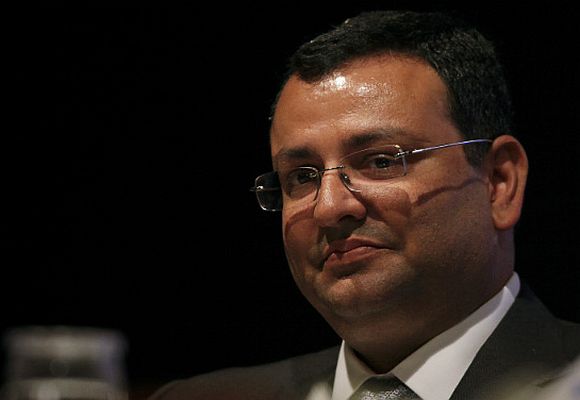

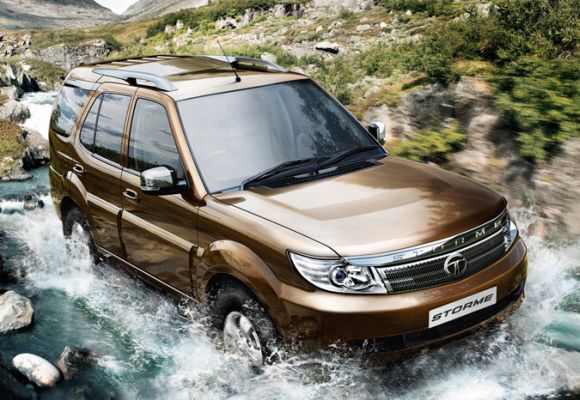
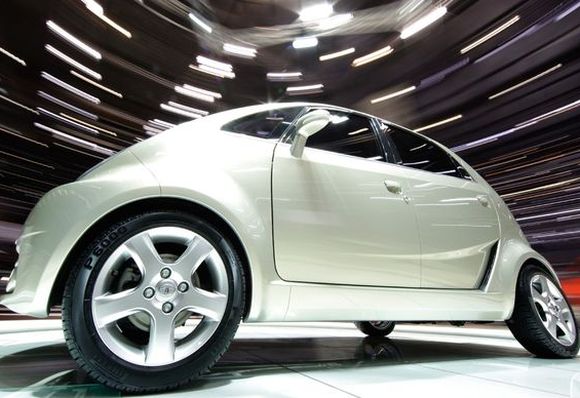
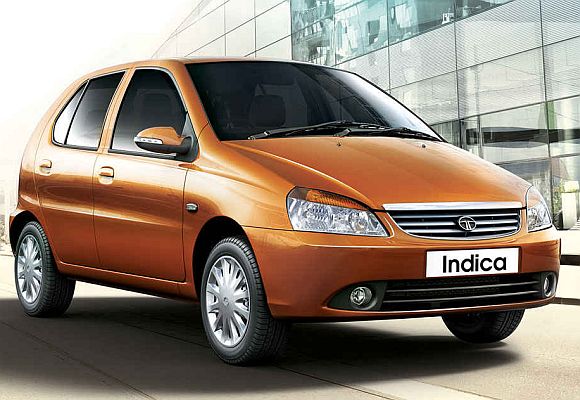
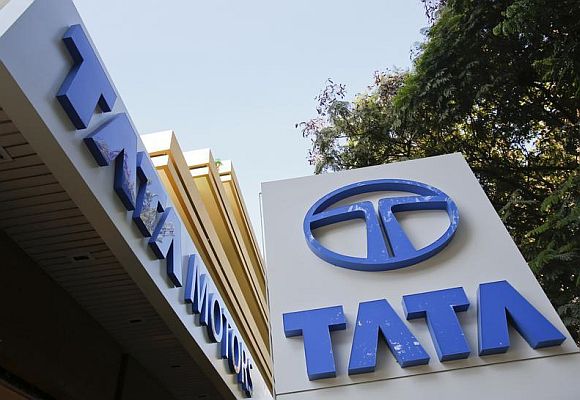

article